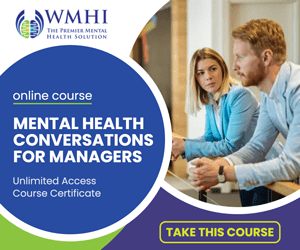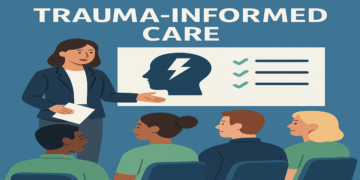Mindfulness can positively impact your performance in your day-to-day activities, overall health and well-being, and relationship. There are several mindfulness techniques: body sensation, basic mindfulness meditation, urge surfing, emotions, and sensory. A mindful person tends to appreciate and focus on the current situation. Recently, mindfulness is gaining more popularity due to its effectiveness and efficiency.
What is Mindfulness?
Mindfulness is a state of being aware or conscious of something. A mindful person focuses on the present moment while accepting and acknowledging thoughts, feelings, and bodily sensations. This means that mindful individuals aren’t judgmental. Below are some of the key mindfulness habits :
- Spend time outside
- Meditate
- Create something
- Engage in your favorite physical activities
- Focus on the task at hand
What is Mindfulness Meditation?
Mindfulness meditation is a mental technique that teaches you to calm both your body and mind. This mental state helps you to concentrate on the present and accept your feelings, sensation, and thoughts without judgment. Mindfulness meditation involves a judgment-free mindset and deep breathing.
Benefits of Mindfulness
-
Decreases Depressive Symptoms
According to research, mindfulness is considered as an effective treatment for depression. Studies show that mindfulness decreases anxiety, depressive symptoms, and traumatic stress. In addition, mindfulness plays a significant role in increasing an individual’s self-compassion. Therefore, you’ll have the ability to control and regulate your emotions. An effective mindfulness session will help you neglect negative emotions and identify their root cause without judgment. Accepting yourself is an important aspect that’ll help you manage and cope with depressive symptoms. There are several advantages of managing depression, such as improve performance at work, better memory, a healthier lifestyle, and pain relief.
-
Stress Reduction
Mindfulness is an essential element that’ll help you fight stress. Some of the factors that can cause stress include chronic illness, divorce, loss of a loved one, relocating, and financial instability. The main symptoms of stress include restless sleeping, inability to concentrate, feeling irritable, being anxious, migraines, low levels of energy, and being argumentative. Stress increases your risk of developing health issues, such as depression, diabetes, Alzheimer’s disease, obesity, gastrointestinal problems, heart disease, and asthma. Therefore, managing stress is an essential aspect that’ll help you attain your objectives. According to numerous studies, mindfulness has the ability to reduce your stress level because you’ll accept your current situation.
-
Improves Physical Health
Based on scientific research, mindfulness techniques play a vital role in improving your physical health. Most people are struggling with chronic health issues; therefore, practicing mindfulness can help them relieve pain. According to scientists, mindfulness can reduce chronic pain, treat heart disease, relieve stress, and improve the quality of sleep.
-
Enhances Creativity
Creativity depends on an individual’s mental state. Mindfulness helps you avoid negative thoughts that hinder self-expression and creative thinking. Accepting your current situation gives you peace of mind, thus allowing you to concentrate on the present moment. In a workplace, creativity is an essential aspect that determines the productivity of your firm.
-
Improves your Focus
Focus is an important aspect because it’s the gateway to all thinking: decision making, perception, reasoning, memory, and problem-solving. Without maximum attention and concentration, all aspects of an individual’s ability to think will suffer. Mindfulness techniques aim at improving your focus on one thing at a time. Therefore, you won’t face distractions that can lower your efficiency and effectiveness in tackling your day-to-day activities. Improved focus prevents you from multitasking, thus helping you come up with exceptional results. Based on studies, a focused mind is termed as a productive mind.
-
Improves Immunity
According to several studies, mindfulness practices are key in improving your body’s resistance to illness. Increased immune function can help you attain your goals.
-
Enhances the Quality of Sleep
Most people are struggling with sleep disorders. Insufficient sleep can contribute to health issues, such as weight gain, diabetes, cardiovascular problems, etc. Mindfulness practices will improve your sleep in various ways. For instance, mindfulness techniques will reduce your heart rate, improve relaxation, decrease blood pressure, and increase serotonin. These ways are key in enhancing your sleep, thus lowering the risk of developing sleep disorders.
-
Builds Stronger Relationships
Individuals who regularly practice mindfulness will have higher odds of expressing themselves and their needs. The ability to express yourself is a key ingredient to healthy relationships.
Mindfulness in the Workplace
Mindfulness in a workplace setting allows managers and workers to let go of negative thoughts about the future and past and on the present moment. Mindful workers will have the ability to deal with work stress and anxiety. Below are ways on how to become mindful at the workplace:
-
Implement Mindful Exercises
Mindful exercises train worker’s brains to be more mindful. Exercises during break time will allow your employees to rejuvenate and optimize their brain function.
-
Be Consciously Present
Being consciously present at the workplace will improve your awareness of the present situation. You’ll have in-depth knowledge about what’s going on within you and around you. In addition, being consciously present will help you manage your emotional and mental state. A conscious person can be characterized with improved attention.
-
Slow Down to Speed Up
By slowing down, employees will become more happy, efficient, productive, healthy, and resilient at work. Resting is an essential aspect that’ll help your business flourish. A relaxed mind will improve your ability to learn new skills that’ll help your firm stand out.
-
Accept What You Can’t Change
A mindful employee will accept their current situation. In order to change your present moment, it’s important to acknowledge the underlying situation.
-
Adopt a Growth Mindset
There are two types of mindset: fixed and growth mindset. Mindfulness techniques will help you adopt a growth mindset because you’ll pay attention to the present moment without judging your innate intelligence or talent. A growth mindset helps workers to improve their talents and intelligence.
Conclusion
Mindfulness practices will play a vital role in improving your overall well-being. In a workplace setting, mindfulness will increase productivity and reduce costs incurred on an unhealthy workforce.









